Illinois | For IBSA churches, 2015 was a year of ups and downs: giving and attendance were up, but baptisms were down.



“It seems clear to me that being a Baptist here in Illinois, indeed being a Christian in America, is becoming increasingly counter-cultural,” IBSA executive director Nate Adams said. “We no longer reach people and grow churches simply by opening the doors on Sunday morning.”
A rebounding economy and continued emphasis on missions giving may be behind a 1.53% increase in Cooperative Program giving to $6,230,082 (reported prior to completion of the annual audit) and a 10% hike in the Mission Illinois Offering last year at $403,595, according to the tallies of the Annual Church Profiles submitted by IBSA churches.

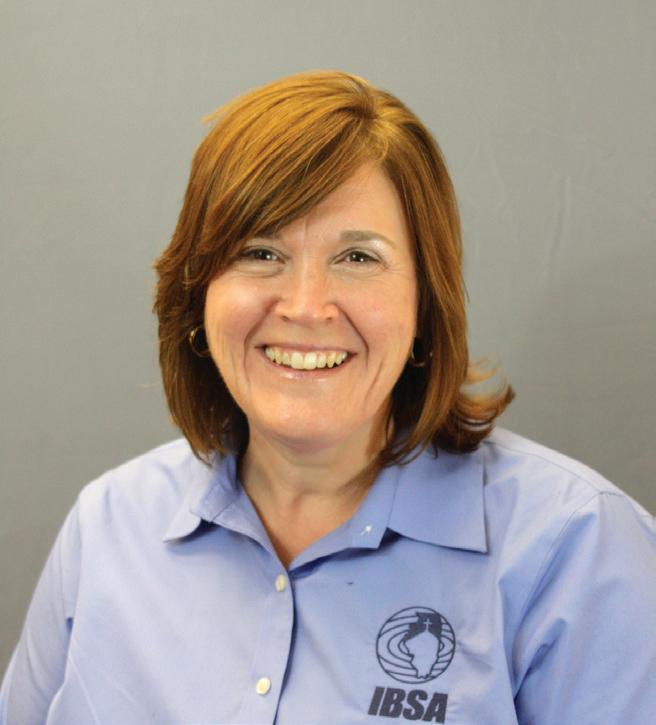
Total membership is up by more than 1,000 in IBSA churches (to 193,972), and worship attendance is up by almost 5,000 (7.3%) over the






ANNIE ARMSTRONG SEASON S’more for Jesus P. 12 TABLE TALK Why ‘Baptist’ is still our middle name P. 13 Get news and commentary 24/7. See page 3 for addresses. Nonprofit Organization U.S. POSTAGE PAID Peoria, Illinois Permit No. 325 Seeing your blind spots People who bug you can really help you Carmen Halsey P. 16 Lessons from the Illinois Leadership Summit P. 7-9 FEBRUARY 15, 2016 Vol. 110 No. 03 News journal of the Illinois Baptist State Association
Illinois Baptist
Annual Church Profiles
attendance tempered by fewer baptisms P. 3 in focus
Tallies reveal challenge Good
Your church’s future hangs in the balance. on Leadership
A Better Grip
CONVENTIONAL WISDOM
Snapshots from the world of Illinois Baptists
“…The share of Americans who have reservations about voting for an atheist president has been declining over time. As recently as 2007, more than six-in-ten Americans said they would be less likely to support an atheist presidential candidate, while just 51% express this view today.”
– PewForum.org
Culture: Religion’s influence is waning
68% of people say religion is losing its influence on American life, and for just under half, that extends to a potential president: How important is it that a U.S. president shares your religious beliefs?
Very/somewhat important Not
Church: voters want candidates with faith
It is very/somewhat important to me that a president shares my religious beliefs:
the cooperative program

Giving by IBSA churches as of 02/05/16
$474,822
Budget Goal: $605,769
Received to date in 2015: $630,818
2016 Goal: $6.3 Million
The Illinois Baptist staff
Editor - Eric Reed
Contributing Editor - Lisa Sergent
Graphic Designer - Kris Kell
Editorial Contributor - Meredith Flynn
Administrative Assistant - Andrea Hammond
For questions about subscriptions, articles, or upcoming events, contact the Illinois Baptist at (217) 391-3110 or IllinoisBaptist@IBSA.org
The Illinois Baptist is seeking news from IBSA churches. E-mail us at IllinoisBaptist@IBSA.org to tell us about special events and new ministry staff.


POSTMASTER: The Illinois Baptist is owned and published every three weeks by the Illinois Baptist State Association, 3085 Stevenson Drive, Springfield, Illinois 62703-4440. Subscriptions are free to Illinois Baptists. Subscribe online at IBSA.org
NATE ADAMS
Teaching Sunday School
Ihave the privilege and challenge of attending a different church almost every week, but this past month I was able to attend my home church two weeks in a row. The first week, at the end of our Sunday school class, our teacher announced that he and his wife would be gone the following Sunday, and asked if any of us were available to substitute.
Our eyes met, and he smiled and said, “I don’t guess you will be here next Sunday.” I replied that actually I would, and a few minutes later I was walking out the door with his teacher’s book under my arm.
I love teaching Sunday school. I’ve done my best to learn to preach over the years, but I’m really more at home in a classroom setting. I love the process of studying and organizing a lesson, of thinking through its most relevant, real life applications, and then planning creative illustrations or exercises that will help everyone take home some practical help.
But it’s more than just the teaching process that always made me love leading a Sunday school class. It’s living life with a small group of people week in and week out. It’s coming together outside class for fellowship and ministry. It’s doing missions projects together. And it’s making our class so fun and inviting and loving that we have lots of opportunities to welcome others in, and even send some of them out to do the same thing elsewhere.
That one week I got to teach Sunday school, I really only got to do the teaching part. Most of the rest of those benefits only come with consistent, loving investment in a group of people over time.
But the Lord did give us a special moment during that lesson. Our text in 2 Corinthians spoke of the burdens and hardships that Paul was carrying for the sake of the gospel. It wasn’t in the curriculum, but in my notes I had simply written the question, “Are we carrying any burdens or enduring any hardships for the sake of the gospel?”
When I framed that question for the group, I made it clear that I wasn’t just looking for a list of minor inconveniences, or for the self-absorbed whining in which we can readily engage. I asked them what burdens or hardships they were currently facing because they longed for someone to know Christ.
Frankly, I didn’t expect a lot of response. Sometimes teachers ask questions simply to create reflection or allow for conviction. But in the hallowed moments that followed, several in the class shared with quiet emotion the difficulties they were currently facing while trying to lead someone they loved to Christ, or back to Christ.
After a few minutes of sharing, we encouraged one another, and urged one another “not to give up,” as Paul had written. Paul labeled his own afflictions “momentary” and “light” compared to the glory that is waiting for us. And as our class shared our own burdens with one another in the context of God’s Word, we felt them get lighter as well. We walked out of that class with renewed determination and optimism. Now that’s Sunday school.
My one week back in teaching Sunday school reminded me again how powerful and transformational small group Bible study can be. And it gave me a renewed appreciation for my own Sunday school teacher, Matt, and for the thousands of faithful men and women that lead Bible studies in our churches every week.
Nate Adams is executive director of the Illinois Baptist State Association. Respond at IllinoisBaptist@IBSA.org.

2 IBSA. org Illinois Baptist
If I ever come to your church to preach, I’m likely to ask you to point me to a good class as well.
48 48%
too/not at all important Don’t know 51% 1%
83% 72% 55% 44% White evangelicals Black Protestant Catholic White mainline
From the front: good times, challenging times for churches
Continued from page 1
previous year. But baptisms declined by 2.4% to 4,400. That’s down 105 from the previous year, and down from recent averages around 5,000 per year.
On the positive side, the number of churches reporting baptisms was 591, up 29 churches from the previous year; and the number reporting zero baptisms was down by 25 churches to 366.
“The need has never been greater to live out 1 Corinthians 9 and become all things to all people to reach some, while also living out Romans 12 and refusing to be conformed to the culture in which we find ourselves,” Adams said.
Another bright spot in the 2015 ACP report is participation in missions and leadership development: Just under 24,000 volunteers from IBSA churches were mobilized for missions projects in Illinois and worldwide. And IBSA trained 8,932 leaders from 592 churches in a variety of ways, for a total of 20,203 personal training sessions.

And in a new reporting category, IBSA set a goal for 2015 of at least 100 new Bible study groups; churches blew past that goal and started 229 groups.
Illinois
rep
“One way to summarize those two contrasting pictures of our mission here in Illinois might be to simply say that fewer people are doing more with less,” Adams concluded. “Another way might be to say that some churches are doing well, while others are struggling. My primary concern is that, in total, our churches’ cumulative statewide impact on lostness in Illinois is not growing, at least not numerically.”
And with at least 8 million people in Illinois who do not know Jesus Christ personally, there’s plenty of room for improvement.
IBSA has targeted five areas for kingdom growth in 2016, rolled out at the Annual Meeting in November: evangelistic prayer, witness training, outreach events, expanded VBS, and new groups. A study in the Midwest showed that churches engaging in these activities were more likely to lead people to faith in Christ and to grow disciples. The IBSA Church Resources Team is assisting all churches that want equipping in these areas. Look for a full report on baptisms and the evangelistic activity of IBSA churches in a future issue of the Illinois Baptist.
aids WMU search
Birmingham, Ala. | Illinois WMU President Jill McNicol is among five women appointed to the search committee charged with identifying the woman God would have as the next executive director for national WMU.
On Jan. 11, Wanda Lee, who has served as executive director since 2000, announced to the WMU board her intention to retire, giving ample notice for a search committee to be formed and seek a new leader.
National WMU President Linda Cooper said she prayed earnestly for God’s direction as she selected search committee members who have extensive experience in WMU and represent various geographical locations.
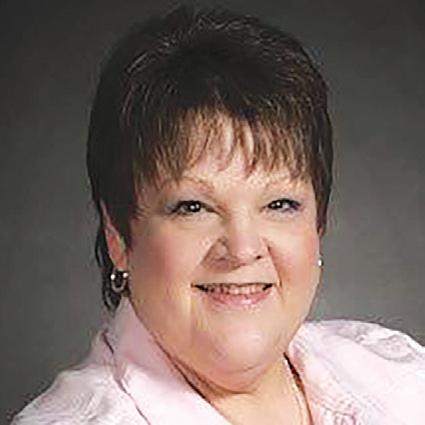
The other four committee members are Joy Bolton, executive director of Kentucky WMU, who will serve as chairperson; Debby Akerman, former national WMU president (2010-2015); Kathy Sheldon, president of Pennsylvania/South Jersey WMU; and June Tate, president of Colorado WMU.
“Above all, I am confident these women will take this task very seriously, seeking the Lord’s guidance in all they do in every step of this process,” Cooper said. “I encourage every Southern Baptist to pray intentionally and daily for the committee, for me, and for the one whom God already has selected who will lead WMU forward.
“I also ask you pray for Wanda who will continue to lead WMU in the meantime,” Cooper continued. “She has given her all to lead us for the past 16 years and is committed to a seamless transition in leadership. I thank God for her and for other strong missions leaders in our churches who know firsthand how God uses missions discipleship through WMU to change lives.”
The committee will begin their work immediately. Recommendations and resumes may be sent to WMU Search Committee, c/o Joy Bolton, Kentucky WMU, 13420 Eastpoint Centre Drive, Louisville, KY 40223; or by email to Joy.Bolton@kybap tist.org, to be received no later than May 1.
– Julie Walters




LifeWay seals deal

LifeWay Christian Resources is moving to North Gulch, a section of Nashville about five blocks from their current location. The sale of the publisher’s current 14-acre site for $125 million was announced in November with the intention of relocating near the Cumberland riverfront. That land deal fell through. The new 2.7-acre site is located in a development called Capitol View. Mayor Megan Barry was delighted to announce that LifeWay and its 1,100 Nashville employees would stay in downtown. Construction on a new 250,000-square-foot headquarters should be completed by early 2018.
Help sought for scholarship review

Due to the increase in applications for scholarships, the Baptist Foundation of Illinois Schol arship Committee needs volunteers to help review the applications they’ve received. The selection process will take place Saturday, March 5, from 8 a.m. to 3 p.m. at Chatham Baptist Church, located at 1500 East Walnut Street in Chatham. A continental breakfast and lunch will be provided. Contact Sheila Odle at (217) 391-3116 or sheila.odle@BaptistFoundationIL.org, or Chair Rob Gallion at (217) 801-8350 or pastorrob fbcpetersburg@gmail.com.
BFI awarded $76,750 in scholarships to 36 recipients for the 2015-2016 academic year.
Get breaking news in The Briefing online, posted every Tuesday at www.ib2news.org.

IBSA. org 3 February 15, 2016 The Ticker facebook.com/illinoisBaptist twitter.com/illinoisBaptist pinterest.com/illinoisBaptist vimeo.com/IBSA www.IBSA.org www.ib2news.org Follow the latest Illinois Baptist news
NEWS
the briefing
McNICOL
Tech workshop Feb. 20

Springfield | IBSA’s Church Resources Team will host a one-day conference on church technology Saturday, February 20.
The conference will feature tracks for communicators who are looking to improve and streamline their church’s ministry through technology. “We have added a track for church secretaries, laymen or staff who handle online giving, financials, attendance tracking, social media, and making the most of bulletins and newsletters,” said Steve Hamrick, IBSA’s director of worship and technology.
Breakout sessions for pastors include computer basics, using smart phones and tablets for ministry, making the most of online resources, and utilizing specific technologies, including the Mac computer and Logos Bible Software.
The conference also will include breakout sessions on social media for outreach and in-reach, and the basics of blogging and podcasting.
“Perhaps the class I am most excited about this year is the lab band practicum,” Hamrick said. After two breakouts on the technical aspects of their specialties, conference attenders in the worship, sound and video tracks will combine what they’ve learned in a handson experience.
“The band will play and sing while the sound team actually runs the sound and the video team will practice controlling the slides,” Hamrick said, “like practice for a real church service.”
Registration is at 8:30 a.m. Lunch is included, and the meeting will dismiss at 1:30 p.m. The cost is $10 per person. To register or for more information, go to www.IBSA.org/worship.
‘Bigger than people realize’
Illinois flood callout complete, Missouri recovery ongoing
Kincaid | Illinois Disaster Relief volunteers were busy with flood recovery efforts in two states throughout the month of January. They came to the aid of flood victims after holiday storms dumped 10 or more inches of rain across Illinois and Missouri.

Flooding in the states killed at least two dozen people, affected roughly 5,000 homes and temporarily closed portions of Interstate 44 and Interstate 70. The flooding was particularly bad in Missouri where in some areas along the Mississippi, floodwaters rose to 48.9 feet, surpassing the 1993 record by nearly half a foot. “It’s bigger than people realize,” said Joe Banderman, leader of the Missouri Baptist Convention’s collegiate relief team. “Unless you’re here, it’s hard to get an idea of the scope of the flooding.”
Springfield | The annual IBSA retreat for ministers’ wives is March 18-19 in Springfield, with a pressing question as its theme: “Where do I fit in this crazy world?”
“Do you ever find yourself questioning if you fit anymore into the work of your ministry?” asked Carmen Halsey, IBSA’s director of women’s ministry and missions.
“The Ministers’ Wives Retreat is a ‘connect event’ for ministers’ wives to fellowship, discover insights about themselves,” Halsey said, “but mostly to rest, encourage and be encouraged.”
Rachel Lovingood, a minister’s wife, author and women’s ministry leader based in Tennessee, is the featured speaker.
The retreat begins at 1:30 p.m. on March 18 at the Wyndham Springfield City Centre (formerly the Springfield Hilton). The meeting is at the IBSA Building on Saturday, and concludes at 3 p.m. Cost is $20 for meals and conference only (no lodging), or $55 for meals, conference and a double occupancy room, and $95 for meals, conference and a private room.
For more information about the retreat or to register, go to www. IBSA.org/women.
Illinois DR teams were kept busy in the rural Illinois town of Kincaid, extreme Southern Illinois in Alexander County, and in the suburban St. Louis town of Arnold, Missouri. Flood recovery work includes helping homeowners dispose of flood-soaked belongings, ripping out floors and walls, spraying mold repellent on the remaining wall studs and floor joists. The process is very emotional for the victims.
Missouri was hit particularly hard by the flooding, said Dwain Carter, the Missouri Baptist Convention’s disaster relief director. He hopes Southern Baptists can continue to help families by deploying volunteer teams to assist in flood recovery, following the departure of teams in late January who prepared meals and engaged in various facets of outreach to flood victims.
“Our Disaster Relief teams had a great impact in Kincaid and also in several small communities in Southern Illinois,” said Rex Alexander, IBSA’s DR coordinator. “These smaller towns are often ignored during times of disaster and the residents were especially grateful for our ministry.”
He expressed his gratitude for all the volunteers who served during the coldest month of the year. “Their commitment and service to the Lord is an example for all of us to follow!”
Carter said the sacrificial service of disaster relief volunteers from 21 state conventions painted a “perfect picture” of Southern Bap-
tist cooperation. “We talk about cooperative giving a lot, but this was a cooperative effort to overcome a disaster,” he said.
“Southern Baptist Disaster Relief,” he added, “is a cooperation of thousands of Southern Baptists to bring hope, help and healing while transforming lives and communities through the Gospel.”
In all, 48 volunteers from Capitol City and Metro East Associations served in Kincaid, while 41 volunteers from Harrisburg First Baptist and Williamson Association served in Olive Branch. A team of 14 volunteers from First Baptist Galatia worked in Arnold.
If you would like to become a disaster relief volunteer, training events are scheduled for April 8-9 at Western Oaks Baptist in Springfield, April 22-23 at Streator Baptist Camp in Streator, and October 14-15 at Lake Sallateeska Baptist Camp in Pinckneyville. For more information visit www.IBSA.org/DR or call Rex Alexander at (217) 391-3134.
– With additional reporting by Baptist Press
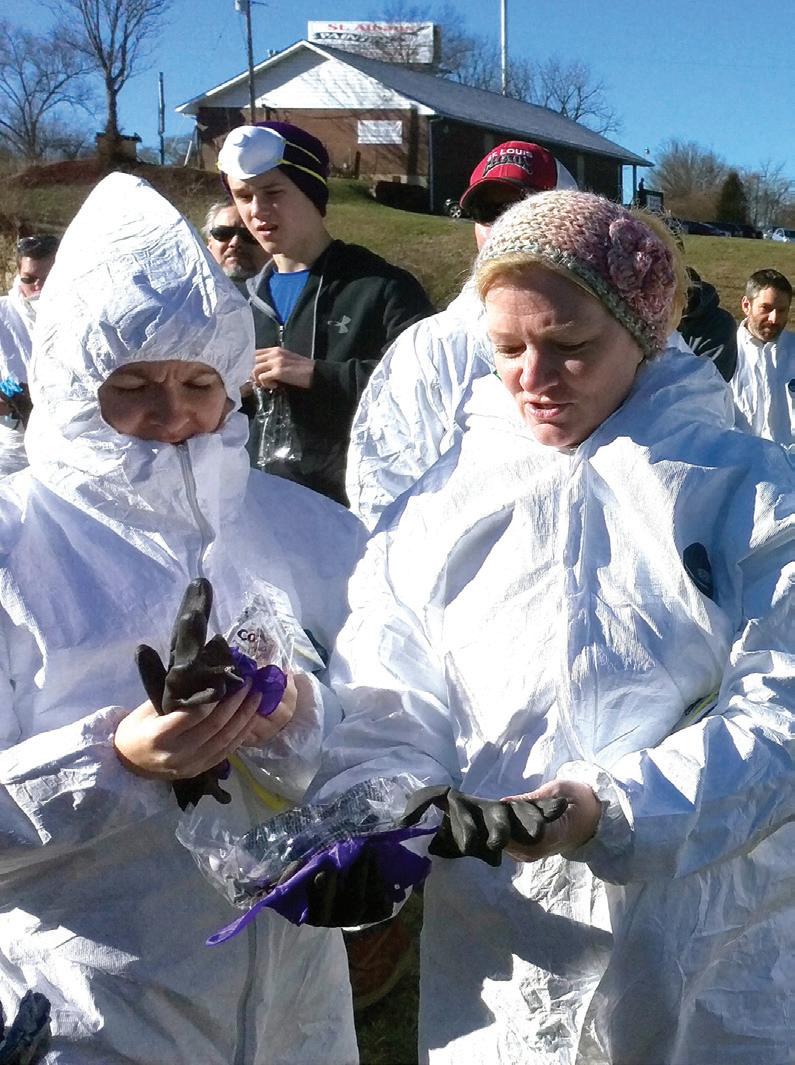
4 IBSA. org Illinois Baptist
HAZ MATTERS – It’s dirty work mudding out flooded homes in the Mississippi River region. Members of Genesis Church suited up to dig out in Missouri. Illinois Disaster Relief teams, including one from Capital City Baptist Association, dismantled destroyed houses in Kincaid.
IBSA Events
Where do I fit?
‘Wives’ seek purpose at retreat
Where evangelicals stand now
After Iowa and N.H., will faith-based voters coalesce?
Obama addresses fear
“Like every president, like every leader, like every person, I’ve known fear,” President Obama said at his final national prayer breakfast February 4.

No one really expected New Hampshire’s first-in-the-nation primary to serve as a predictor of evangelical voting patterns, since only 9% of the state’s voters call themselves “evangelical.” But after strong support from the Christian right in Iowa, Texas Senator Ted Cruz’ dropped to third place in the Republican presidential race raising questions whether Cruz regain his footing among Christians.

According to a Washington Post article from the morning after the New Hampshire primary, Cruz, and perhaps other evangelical-friendly candidates, need not worry. While Gallup polling found New Hampshire to be the least religious state in the country, upcoming Super Tuesday states in the heavily evangelical South are predicted to tip the balance.
Before Illinois votes on March 15, the question of the “evangelical bloc” may have been decided. On Super Tuesday March 1, six of the 11 states holding primaries have large numbers of evangelical voters. Before that is the February 20 South Carolina primary, and more primaries take place March 5, 8, and 15 in heavily Christian or evangelical states including Kansas, Louisiana, Kentucky, Mississippi, Missouri and North Carolina.
As these primaries approach, are evangelical voters pitching their lot with frontrunner Donald Trump, sticking with other frontrunners Ted Cruz and Marco Rubio, or have they found a new candidate in Ohio governor John Kasich, who finished second in New Hampshire? Kasich has written about his faith in a book called Every Other Monday, describing his 20-year participation in a men’s Bible study group.
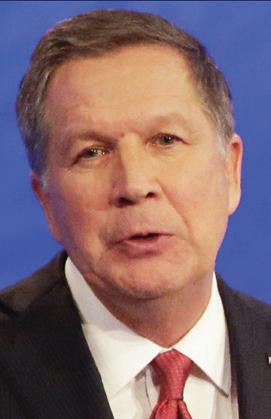
Florida senator Marco Rubio, who evangelicals helped to a third-place finish in the Iowa caucuses, stumbled in the New Hampshire primary and finished fifth behind former Florida governor Jeb Bush.
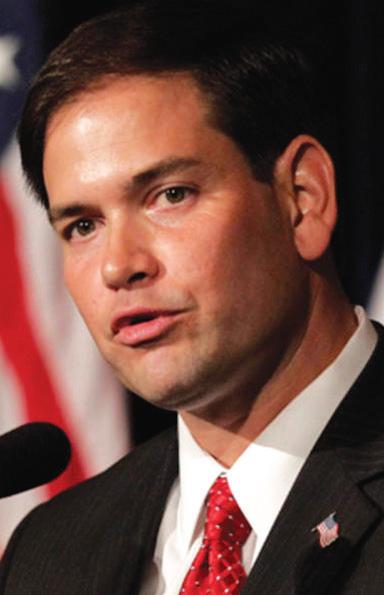
Faith isn’t the only apparent gap in this election cycle. Analysts point to an education gap in supporters of Trump and the other Republican candidates. Among people with only high school degrees, Trump leads Cruz 46 % to 13%; while among people with higher degrees, the gap closes to only 13 points.
In a poll of Protestant pastors conducted in January, LifeWay Christian Research found considerable disparity in the support for Trump. Only 5% of self-identified Republican pastors support the real estate mogul.
“One of the most surprising findings of our survey was the poor showing of Donald Trump (among pastors)”, said Ed Stetzer, executive director of LifeWay Research.
“When it comes to Mr. Trump, there seems to be a huge gap between the pulpit and the pew.”

As of the time of that survey, four-in-ten Republicans and three-in-ten Democrats were still undecided about which candidate they would support. LifeWay found that older pastors (those over 64) are more likely to be undecided (54%) than those 18 to 44 (44%). Older pastors were more likely to favor Trump (8% percent), while Cruz performed well with pastors 45 to 54 (21%).
Among U.S. pastors of all denominations, LifeWay found 54% identified as Republican while 46% were Democrats.
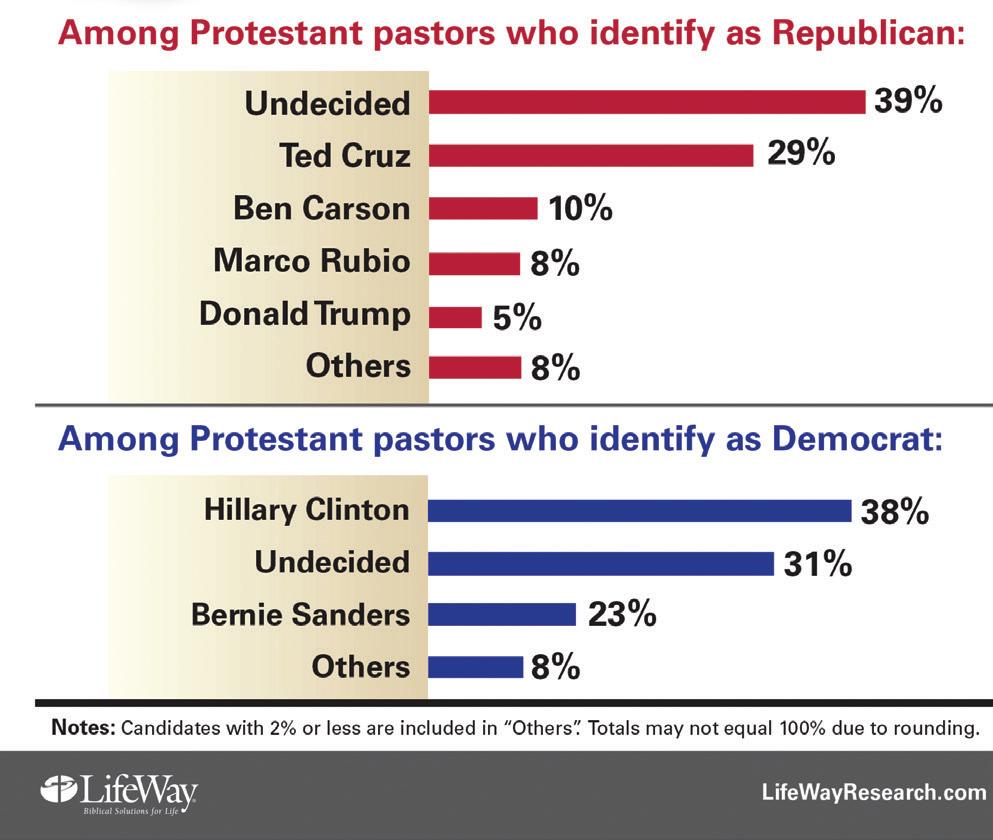
Democrats are not making much appeal on the basis of overt faith-based values. Religion News Services describes frontrunner Hillary Clinton as a “social-justice-focused Methodist,” and Senator Bernie Sanders as culturally Jewish and “unabashedly irreligious.” Clinton’s thumping by Sanders in New Hampshire is likely to be balanced by support from a more diverse electorate elsewhere, including Black Protestants in the South.


“Simply put, it’s a bizarre election season,” Stetzer said.

– IB Staff with additional reporting from Baptist Press and RNS
“But my faith tells me that I need not fear death, that the acceptance of Christ promises everlasting life and the washing away of sins. If Scripture instructs me to put on the full armor of God so that when trouble comes I’m able to stand, then surely I can face down these temporal setbacks.” Obama cited 2 Timothy 1:7: “For me, and I know for so many of you, faith is the great cure for fear. Jesus is a good cure for fear.”
CEO of the SBC’s Executive Committee Frank Page and his wife, Dayle, were in attendance as guests of Republican Congresswoman Marsha Blackburn of Tennessee.
Embattled prof departs
Two days ahead of a hearing on her possible termination, political science professor Larycia Hawkins and Wheaton College jointly announced her departure from the evangelical school. Hawkins was placed on leave in De cember after she posted online that Christians and Muslims worship the same God. In the post, Hawkins was explaining that she adopted a Muslim headdress during Advent as an expression of support for Muslim women. Twenty alumni of the department had recently signed a letter in support of Hawkins. The announcement called the severance agreement a “reconciliation,” but both parties pledged to keep silent on the details.

‘Anointed’ players
Denver Broncos and Carolina Panthers players weighed in on faith during a media event at the opening night of Super Bowl 50 in San Jose, California.

“I thank God every day for where I’m at...for blessing me with these abilities,” said Broncos linebacker Brandon Marshall. “I feel like I’m anointed to do this. That’s why I play the game, also for my family.” A key to success, said Panthers defensive end Jared Allen, is for players to accept that football and life are not about them. “Obviously God has blessed me with a tremendous talent and I have the ability to play this great game so I just try to keep that in perspective....There is somebody else guiding this ship and God’s got a plan and I’m kind of along for the ride.”
– Baptist Press, Christian Post
IBSA. org 5 February 15, 2016 Politics 2016
& Work
Faith
CLINTON SANDERS TRUMP CRUZ RUBIO
KASICH
reporter’s notebook
Do they ‘get’ us?
“If he [Trump] turns out to be their [evangelical] standardbearer, this once-cohesive movement will have to spend this election season asking itself what it really means.”
– The New York Times
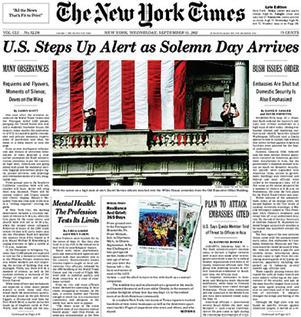
“Donald Trump Divides God’s Voters” January 28, 2016
“But, as highlighted by the evangelical attraction to Trump, and the similarities of much of Cruz’s stances and rhetoric, evangelicalism is undergoing its own crisis—if not of faith, of politics.”
– Rolling Stone magazine
“Meet the Evangelicals Who Hate Donald Trump” February 3, 2016
“You wouldn’t know it from some media reports, but evangelicals do things other than anoint Republican candidates. Even in Iowa. They start new churches in one of America’s least Bibleminded cities. They teach and train the next generation of doctors and farmers.
“Even when they host the candidates at their schools, they don’t uncritically accept what they’re told.”
– The Washington Post
“Don’t be fooled: Iowa evangelicals of media fame do not represent the nation’s evangelicals” February 1, 2016
Media try to figure out evangelicals
It’s been interesting to watch news coverage of the run up to the 2016 presidential primaries. The candidates’ big personalities and bold claims both entertain and dismay. More interesting is the press’ attempt to understand evangelical voters. Not until a week before the Iowa caucuses did most mainstream media consider the impact of evangelical voters, and when they did, they often got it wrong.
When Donald Trump spoke at Liberty University, the news outlets rushed to the conclusion that he would draw the evangelical vote, as if all evangelicals were of one mind in this election. The New York Times published articles about the evangelical mindset, interviewing members of nondenominational churches but not including Southern Baptists. But as tweets and posts and news reports even from our own SBC leaders and leading pastors show, now more than ever, evangelicalism is what church historian Mark Noll called “a fractious beast.” And what the Iowa caucuses showed us is that not all evangelicals think alike—or vote alike.
When Washington Post columnist Kathleen Parker appeared on CNN, she remarked, “Ted Cruz said something that I found rather astonishing. He said, you know, ‘It’s time for
the Body of Christ to rise up and support me.’ I don’t know anyone who takes their religion seriously who would think that Jesus should rise from the grave and resurrect himself to serve Ted Cruz. I know so many people who are offended by that comment.”
It was biblical language, and Parker didn’t get it.
And there’s this example: The Washington Post published an article about Marco Rubio in which it quoted him as referring to Jesus as “God-made man” when answering an atheist’s question in Iowa. Evangelical theologians rose up and declared that with the addition of the hyphen, The Post made Rubio a heretic; the implication of that version of Rubio’s quote said Jesus was a creation, and thus, not fully God. Witnesses said that’s not what Rubio meant at all. But the writer didn’t catch the significance of a small grammatical change.
Whether mainstream media outlets understand who evangelicals are or what we believe, this much is proving true: At more than one-fourth of the electorate, evangelicals’ votes still matter. So, get the popcorn ready and sit back for more entertaining— if not well-informed—coverage of the 2016 election.
The Hispanic population in the United States will triple by 2050, and the church is already growing and thriving. Trinity has a unique opportunity to empower the next generation of Hispanic Christian leaders, to serve communities and churches in Latin America, and to expand its reach through its graduates.
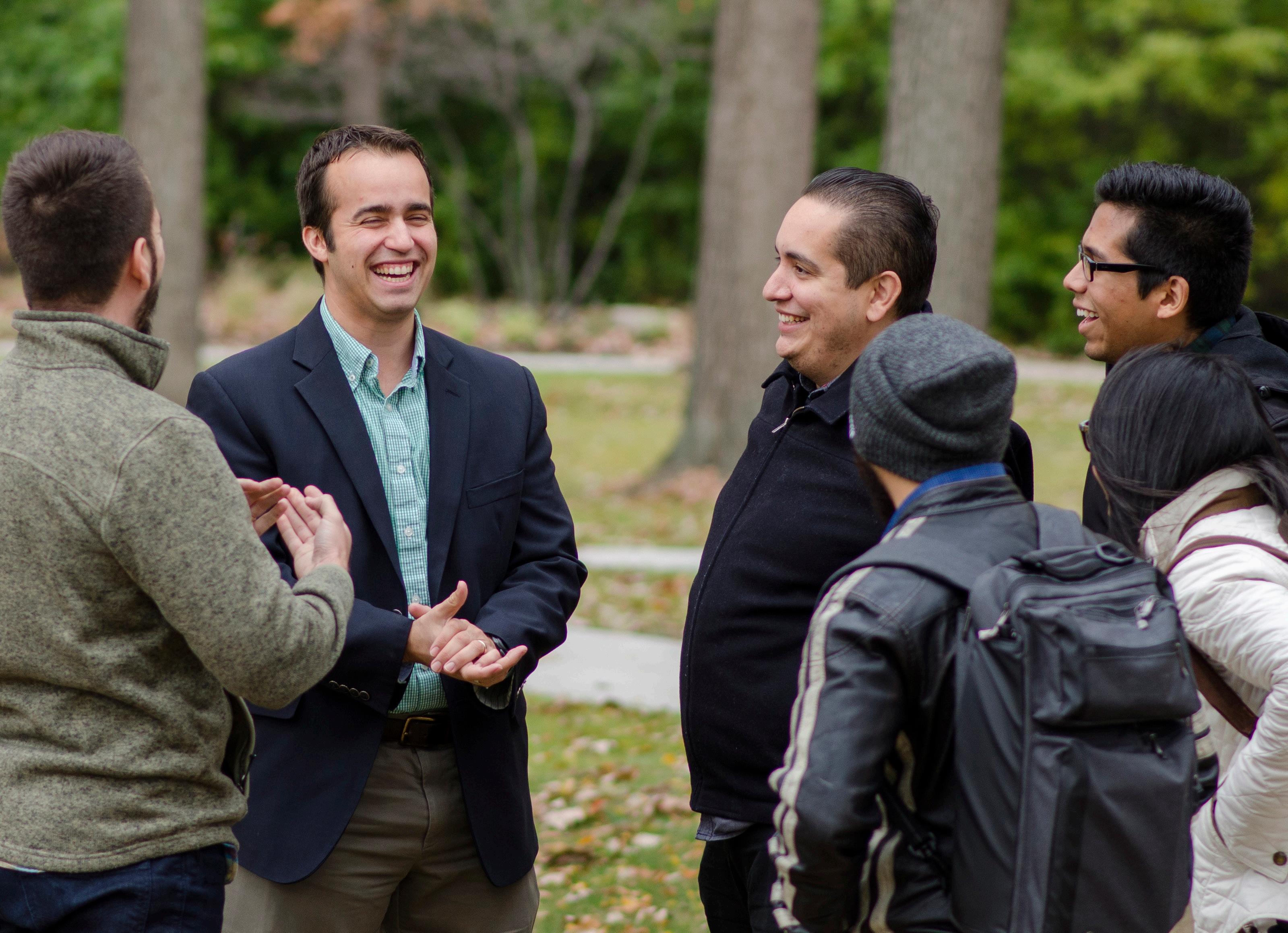
I thank God for this opportunity, and I am excited about our future!
JARED E. ALCÁNTARA | ASSISTANT PROFESSOR OF HOMILETICS
TEDS faculty member Jared Alcántara cares deeply about providing Hispanic students with opportunities to gain sound biblical and theological teaching, to grow in their ability to see needs and challenges in the world, and to participate in advancing the gospel ministry of reconciliation in partnership with local Hispanic churches.
– LMS
6 IBSA. org Illinois Baptist
teds.edu/ilbap 2065 Half Day Road | Deerfield, Illinois 60015 | 800 345.8337
Quotable
IN FOCUS
Grappling with leadership
Springfield | Michael Kanai came to the Illinois Leadership Summit excited about recent happenings at his church. “We had a retreat and we made many plans and casted our vision,” the pastor of Orchard Valley Baptist Church in Aurora said. “Now,” he continued, “we need to implement and execute the plans.”
For many pastors and church leaders, that’s the hard part: turning plans into action and leading the congregation to achieve the goals. A stumble or two at this stage can stall the work and cause the people to wonder about
the abilities of the leader.
But, don’t be mistaken, this article is not about goals and action plans. It’s about what happens in the heart of the leader who realizes he can’t do the ministry alone. He needs a team, and more important, he needs a team of leaders.
“We are at a point where we are needing to lead leaders,” Kanai said. “It’s really helpful learning the difference between leading followers and leading leaders. The ‘collective’ we just attended just told us there is a steep

Continued on page 8
Get a grip
Heath Tibbetts, pastor of First Baptist Church of Machesney Park (above), was one of 28 speakers and 249 attenders at the Illinois Leadership Summit held in Springfield January 26-27. Worship and prayer opened each of the four sessions, which explored IBSA’s leadership development process:

• Leading self
• Leading followers
• Leading leaders
• Leading the organization
IBSA. org 7 February 15, 2016
It may be hardest part of ministry, but the local church’s future depends on leaders who understand who—and how—they lead.
The guides’ advice
3 highlights from 32 breakouts
Multiplying Disciple-making Leaders
Michael Nave – Cornerstone Church, Marion
By Jesus’ design, is a disciple a follower or a leader? When most people think discipleship, they jump to the word “follower” and assume, if I’m following Jesus then I’m following. We discover today that following Jesus is becoming a leader as much as it is a follower.
At Cornerstone, we allow small groups to be centered around anything (but sin). They can gather around anything in which they can find connection with other people.
Our small group leaders are asked to regularly ask their people, “What is your next step in Christ?” So the leader is responsible to know where their people are at spiritually. This creates biblical community.
Developing a Leadership Pipeline
Chet Daniels – Redeemer Church, Urbana
There are three ways we go wrong with the pipeline: it’s too twisty and wind-y so that you don’t know which way is up. We try to fit square pegs into round holes. And, honestly, sometimes we don’t have the first clue how to develop leaders.
The first step (of six) in the process is to define the leaders you are seeking to produce. People are not going to rise to the occasion if they don’t know what your end goal is. And if you don’t know what that is, they certainly won’t know what that is.
Multiplying Leaders

Van Kicklighter – Associate Executive Director, IBSA Church Planting Team
Most of our churches have never seriously thought about the task of asking, When you need a leader, where do you go? You should first look inside your own organization. The leader may be sitting next to you. How do you know if they’re a leader? Look around and see if anyone is following.
Effective organizational leaders are leading other leaders, not just building a thing. Effective leaders reproduce other leaders. The result of our leadership is not just something we call a church or a program or a class or a ministry; it’s a person who leads.
See it online
Many of the breakout sessions were recorded on video. Look for them at IBSA.org/equip
Read more about it
Some teaching sessions will be featured in the next issue of Resource magazine, IBSA’s one-ofa-kind equipping publication for Illinois church leaders. Look for it in your church mailbox in March. Or sign up online at IBSA.org/ subscribe.
step between those two types of leadership— it’s a pivotal shift in the way you lead.”
Halfway through the Summit, Kanai was clearly “getting it.”
Setting the (grappling) hook

For two days in January, pastors, staff, and church leaders convened at the Springfield facilities of the Illinois Baptist State Association. Last year at the same time, almost 1,300 leaders from 10 Baptist state conventions across 13 states gathered for the Midwest Leadership Summit at the nearby Crowne Plaza.
Previously called the North Central States Rally, the triennial event schooled ministry leaders in programming and skills to help grow their churches and fulfill their callings in their Upper Midwest mission fields. But this meeting was different: First, it was an Illinois-only event. With the two-year break between conferences, IBSA sought to build on the momentum from the 2015 event by bringing Illinoisans together to address the leadership issues we face here. And second, this event was not so much about skills, but about the heart and character of the leader.
“When most pastors think about leadership in ministry, they view it as administrative duties, supervisory oversight, or managing some new project,” said associate executive director Pat Pajak. “Until a pastor discovers the necessity of leading himself, especially in the areas of spiritual disciplines and character development, he will never be able to lead followers, lead leaders, or lead an organization in the way God intended.”
That’s why this Summit was different.
“IBSA frequently offers ministry skill training, but we made it clear from the outset that the Summit would focus on one’s personal growth as a leader,” said executive director Nate Adams. “That shift appears to have both met a felt need, and also created an itch among leaders that IBSA hopes to help scratch in the days ahead.”
The centerpiece for the event was the new leadership development process that the IBSA team has been crafting for more than a year. The main speaker for the event was Bob Bumgarner, a leadership expert who has contributed to the creative process. He was joined by four Illinois pastors in the main sessions (called “collectives”), and by 28 other pastors and ministry leaders in breakout sessions (called “intensives”).
“I think we would all agree that leadership development is forefront and needed in Southern Baptist life,” Bumgarner said. “And I also think we all would agree that it’s not
as easy as it sounds.” Bumgarner (pictured above) headed leadership development for the Florida Baptist Convention and currently serves as executive pastor of Chets Creek Baptist Church in Jacksonville, Florida, a large, multi-campus congregation.
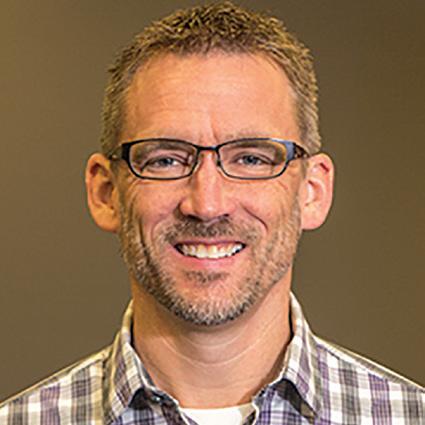
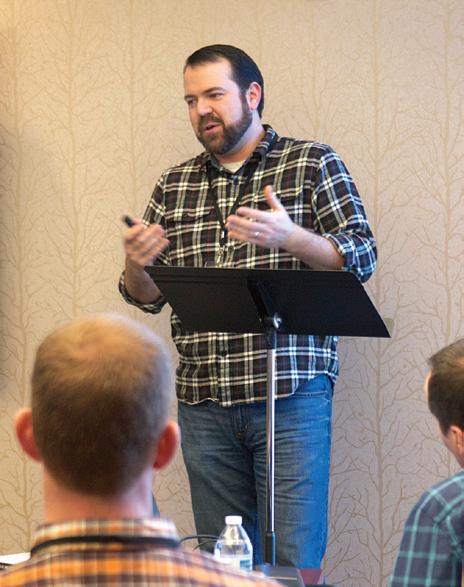
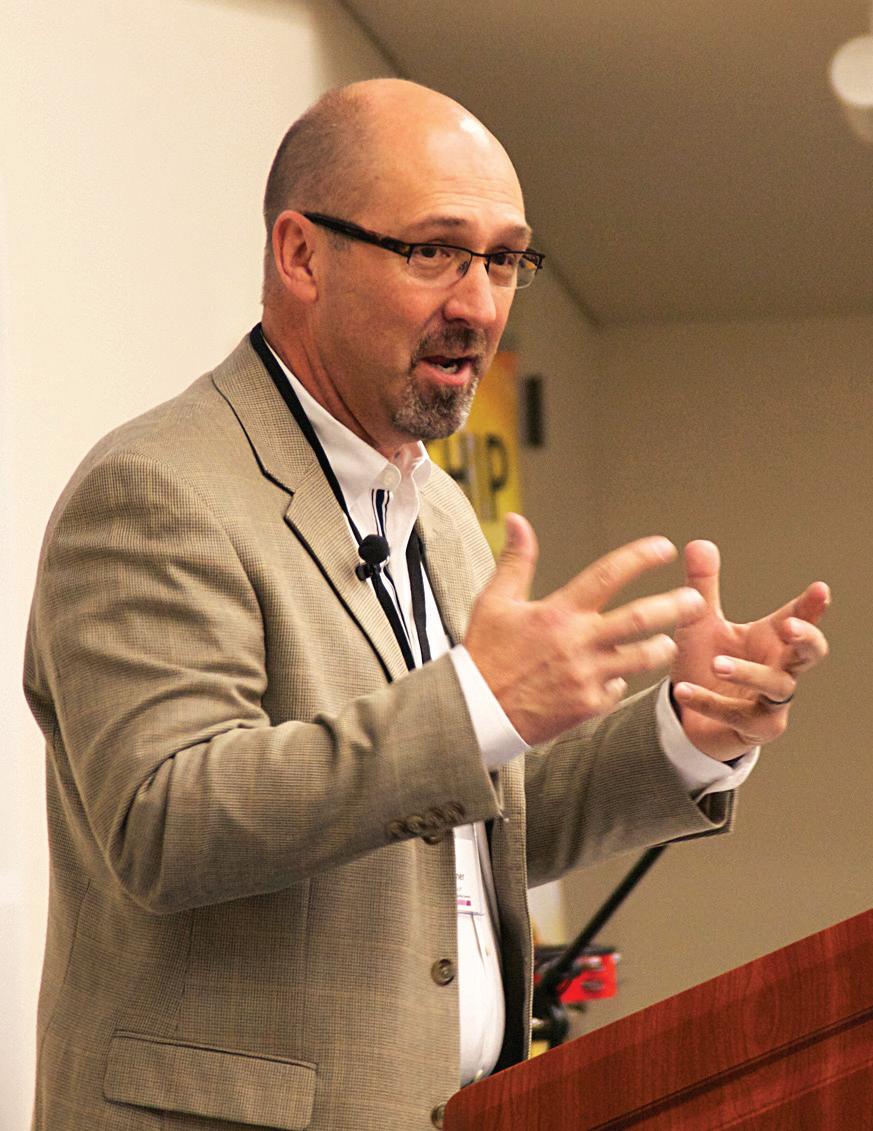
Bumgarner sought to dispel the myth that all leadership is alike no matter the group or setting; and that leadership is innate and there’s nothing that can be done to improve it.
Not true.
IBSA’s four-part plan



Leading self is about growing your capacity to be on Jesus’ mission as a person of influence.
“The hardest person I ever lead is me,” Bumgarner said, as he began to unpack the four phases in IBSA’s leadership process.
“We have to understand that before we can lead others well, we have to learn to lead ourselves.”
Bumgarner pointed to the iceberg as a good illustration of the issues in self-leadership. Most of it is under the surface. That’s why character is so important. “You can get so successful that your character can’t support (your ministry)….If you want to be a better self-leader, figure out how you can hunger for God’s wisdom.”
He recommended spending five hours per week developing character and 50-60 hours developing ministry.
“Ministry is a place where you can be completely busy or completely lazy, and people won’t know,” said Heath Tibbetts, pastor

p y R e s o u r c e Eq pp g h h d S 20 6 d h p pipe ne Mov ng Herd Preach ng w th the goal n mind Vision Lead ng with h 8 IBSA. org Illinois Baptist
Continued from page 7
NAVE
of First Baptist Church of Machesney Park. He brought some personal applications for pastors. “I’ve realized strong self-leading means that even if no one else is looking, the Holy Spirit is keeping me accountable.”
Leading followers is about leading individual contributors, people who are not leading others, often serving as a ministry head or teacher in small groups or classes.
There are official followers, such as deacons or committee members, but there are also unofficial followers, the people who like or respect the leader, who have bought into the vision and want to be part of making it happen.
Bumgarner said at this stage, the objective is to identify your followers, inspire them by giving them a leader worth following, initiate followers by casting vision, and invest in their personal development. Make a goal, he advised: “By the end of next year, I want to have invested this amount of time into this number of people.”
“Our church grew when I stopped trying to lead big and started trying to lead through small groups,” said Mark Mohler, pastor of Second Baptist Church of Marion. He described bringing his congregation into a new vision for the church that found its most vital point of connection at the level of Sunday school classes.
Leading leaders is directed toward those who lead others. It requires a different skill set to keep those people who have leadership abilities of their own on your team.
Here is the pivotal point in the four phases of leadership. Adams described an image of stairs. In this case, not all the stairs are of equal height. Some have a short rise, others have a tall rise. The step between leading followers and leading leaders is the biggest jump for most people. And as Kanai described his own discovery at the Summit, it’s the most critical.
A leader who can only lead followers is limited by his own capacity; but a leader who can lead those who lead multiplies his capac-
ity. But leading leaders is challenging and it’s risky. Other leaders have their own ideas, and they may set their own agendas.
“It can be one of the scariest moments of our life,” Bumgarner said, “nurturing your baby and then handing the baby to another person to raise….Regardless of the pain sharing a ministry can cause, something bigger and better can happen as a result.”
At this stage, empowerment of additional leaders must be balanced with clear, ongoing vision-casting: “85% of your success in leading leaders is wrapped up in common purpose and clear communication,” Bumgarner advised. “Do enough (communication) so that downstream from that work, we can see the fruit we’re looking for.”
Leading organizations is about leading leaders who lead other leaders. It’s about having a vision for the whole ministry and communicating that effectively to the whole organization.
In church life, this leader is usually the senior pastor, but not every pastor is actually leading at this level. He may be leading followers, or even leaders, but not effectively guiding the work of the whole ministry.
“Leading organizations requires working on the ministry versus in the ministry,” Bumgarner said. Many listeners in the room seemed to connect with this comment. He described a season when his ministry was consumed by the work of ministry rather than giving adequate attention to the purpose of the ministry, its vision and goals.

Leadership at this level requires strategic planning about how to do the ministry. “Your church needs you to facilitate the things that need to be done in order to share the gospel. If you find time to get the top 20% done, the other 80% will be done right.”
Bumgarner concluded, “The point of organizational functionality is to keep the main thing the main thing.”
Scaling the heights Observations from climbers
Austin Adams – Crossroads Community Church, Carol Stream
Why did you come to the Summit? I have 65 middle school and high school students a week. I’m also in charge of the hospitality team, greeters and ushers team. I came to get a better understanding of how to lead people, specifically how to help someone move from being an attendee to becoming a leader in our church.
What’s your take-away?
Someone who exhibits leadership is someone who can mobilize and influence people to do something. I think that’s important. And I thought the concept of “expect and inspect” was great. Basically it’s about being clear on what your expectations are as a leader of people and then inspecting, or following up, to see that those expectations are being carried out.
Olivia Jones – Peoples Missionary Baptist Church, Rock Island

What did you hear that excited you? The biggest challenge I face as a leader is getting the next leader ready. I appreciated what Chet Daniels said about preparing to pass the baton. I’m going to go back home and tweak it to fit me, to fit us. I think this will give me the strength to put something together.
Michael Kanai – Orchard Valley Baptist Church, Aurora

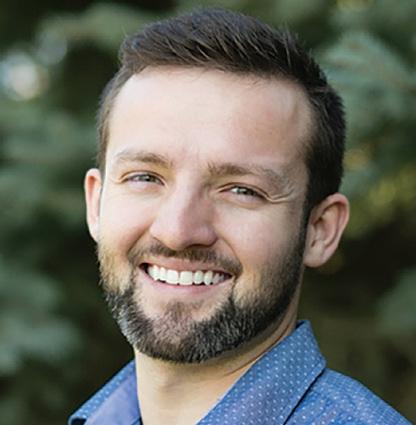
What’s your take-away?
I really like the “three tables” that were discussed. Bob Bumgarner described the table where the senior leadership team sits. Then the leaders of ministries are at the next table, and the last table is the one where the leader of a particular ministry meets with the people involved in only that ministry.
Whatever is planned at the first table has to be so clear that by the time it’s passed along to the third table, it’s still clear. It got me thinking how valuable clear communication is. Communication must be so clearly presented that the back table gets it.
Would you recommend the event?
Yes, this summit has been the perfect tune up for us. I’m excited to get started.
IBSA. org 9 February 15, 2016
– Coverage of the Illinois Leadership Summit by Meredith Flynn, Kris Kell, Kayla Rinker, Lisa Sergent, and Eric Reed
OVERFLOW ROOM – Eric Trout, Ashby Tillery, and Mark Mohler, all from Marion, were among Summit attenders who watched the large-group collective session in the room adjacent to IBSA’s auditorium.
ADAMS
JONES
KANAI

From our city to yours
Crossover makes a difference in host city and back at home
crossover Checklist
Making plans to join Uptown and hundreds of other churches at Crossover prior to this year’s Southern Baptist Convention? Start now by working through this checklist of questions:

Who’s going?
As you recruit volunteers for your Crossover team, think about who they are. What are their ages, ministry skills, and spiritual gifts? View the list of Illinois Crossover projects at meba.org/crossover-st-louis2016, and look for those that fit your team. For example, if you have Spanish speakers in your group, consider joining Iglesia Bautista Maranatha in Granite City for prayer walking and door-to-door evangelism in their community.
Interested in sports outreach? Help Sterling Baptist Church host a 3-on-3 basketball tournament.
Chicago | The words of an old praise chorus aptly describe the effect missions can have in a local church:
“It only takes a spark to get a fire going…”
Once church members who have engaged in missions start “passing on” their experiences to their friends, it can ignite a missions fire of sorts, causing a church to look in their own neighborhood and beyond for ways they can reach more people with the gospel.
11, although some projects start earlier (see planning timeline at right).
Last year, Glover and his family participated in Crossover with a team from Uptown Baptist Church in Chicago. The volunteers worked with a church in urban Columbus, Ohio, to prayer walk their community and share the gospel with people they met. Glover and the team also helped train the Ohioans in prayer walking and evangelism, equipping them for the ministry they did together.
Once they got back to Chicago, they shared with the rest of the congregation what had happened in Columbus. As with any mission trip, the resulting benefits could have stopped there, Glover said.
Columbus, said Uptown’s missions coordinator
Doug Nguyen, the church worked with “an urban congregation that ministered to Muslims and immigrants, as well as families around the neighborhood in downtown Columbus.
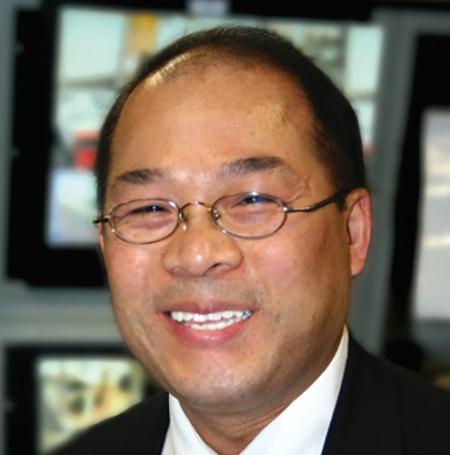
“And we’re looking to do the same in St. Louis.”
After Uptown partnered with a Baltimore church for Crossover in 2014, they were able to pray for the congregation specifically when rioting broke out in the city the next spring. “We’re all praying for them right now, for churches to really step up and be the salt and light in that community,” Nguyen told the Illinois Baptist at the time.
What time can they give?
Most Crossover projects happen the Saturday before the Convention begins— this year, that’s June 11. But some initiatives cover a longer span of time:
A church plant in Fairmont City needs help with a home makeover project June 6-11.
Two congregations in Hartford and East Alton are working together on a week-long canvassing project, capped off with a community block party.
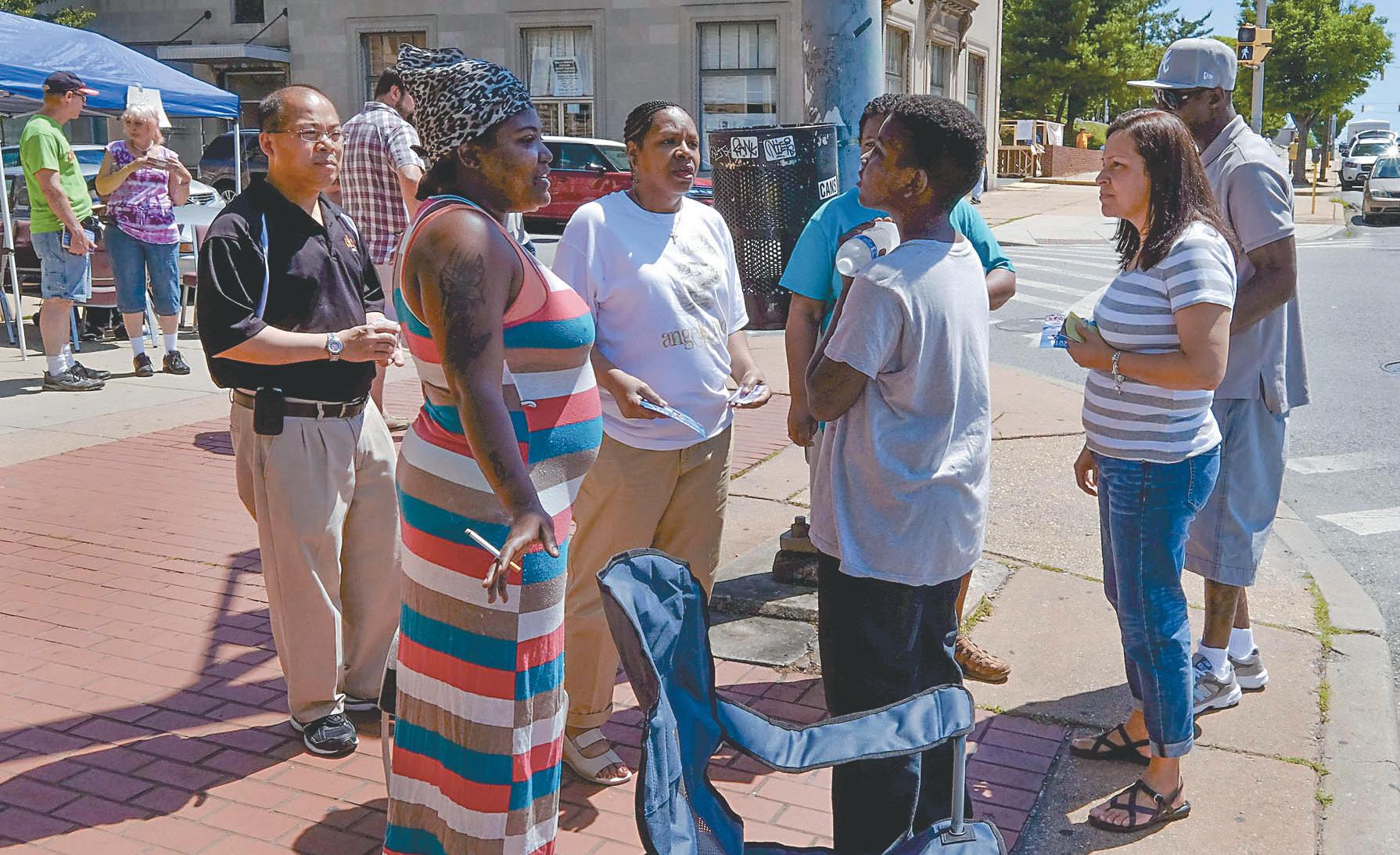
A new church in Collinsville will utilize volunteers for community surveying and sharing the gospel on Saturday, and then will host a preview worship service Sunday. Check the full project list at meba.org for more multi-day opportunities.
What’s next?
That’s how IBSA zone consultant Steven Glover describes the impact of Crossover, an annual outreach event held prior to the Southern Baptist Convention. This year’s Crossover initiative in St. Louis is planned largely for Saturday, June
“But if you have people who have participated in and are excited about it, they’ll continue to talk about it,” he said. That’s why the key is getting as many people involved as possible.
This year, Uptown will take a team to St. Louis to work with a church in a similar ministry setting as their own inner-city church. In
When mission volunteers help other Christians reach their community, they’re bearing each other’s burdens, Glover said. They’re energized by helping fulfill the Great Commission, by doing what God has called his people to do.

They’re also more likely to come back home and find ways to do the same in their own city.
“It’s a good investment,” Glover said, “because it’s an ongoing thing.” Iron sharpens iron, he said, referencing Proverbs 27:17. “Getting next to someone who has gone out and done that has such an impact.”
Start thinking now about how to share your ministry experiences with the congregation back at home. Which stories best illustrate how God worked through your team to increase your partner church’s influence and favor in their community? Did anyone accept Christ? What spiritual needs can your church pray for over the next year?
Also, how might you extend the relationship with your Crossover partner church? Uptown kept in touch with Baltimore pastor Ryan Palmer, who they worked with in 2014. He visited Uptown when he was in Chicago the next year. As you plan your Crossover project, consider how it might spark a ministry partnership that goes beyond one day.
IBSA. org 11 February 15, 2016
COLUMBUS – Mission volunteers from Uptown traveled to Columbus, Ohio in 2015, where they worked for two days training and encouraging local believers in prayer walking and evangelism.
BALTIMORE – Members of Uptown Baptist’s Crossover team share the gospel prior to the 2014 Southern Baptist Convention.
NGUYEN
The prophet Isaiah’s pledge to go where God would send him is the foundation for the 2016 Annie Armstrong Easter Offering and Week of Prayer for North American Missions. Six missionary families who have accepted God’s call are featured during the Week of Prayer, set for March 6-13. The goal for the 2016 Annie Armstrong Easter Offering is $70 million.
Offering kits were mailed to churches last month. Go to AnnieArmstrong.com for more resources and promotion ideas, including:
Annie Armstrong Easter Offering
Missions focus is March 6-13

Videos about each missionary and their ministry, including Ryan and Seane’ Rice (above), who planted Life Church New Orleans in 2014
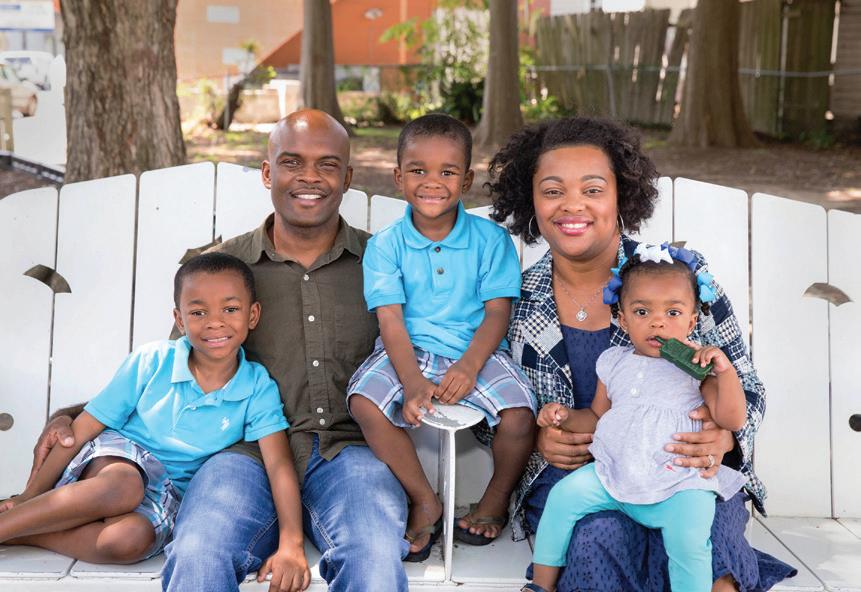
Mission studies for kids, teens and adults
Prayer guide (available in English and Spanish) and prayer reminder bookmarks

Contact list for Week of Prayer missionaries
Info about Annie Armstrong herself, and how the offering is used to support missionaries across North America

Indianapolis | Three years ago Barry Rager was the pastor of a small Kentucky church. Most of his days were centered on important church business. He prepared sermons, visited sick members and mediated church disputes. All good work. All important work. All kingdom work.
“I was kind of like the coach saying, ‘Hey, reach the people you are with,’ but I wasn’t actually the one doing it,” Rager says.
Three years later, and his life couldn’t be more different. Living in the Mapleton-Fall Creek neighborhood of Indianapolis’ core, his mission field is everywhere.
A trip to Indianapolis for the 2008 Southern Baptist Convention first opened Rager’s eyes to the needs of the city. It wasn’t until 2012 that James Edwards came to him with an offer: “We want to plant a church in a major U.S. city, and we want you to be the planter.” Rager didn’t have to think hard about which city.
Edwards, pastor of Pleasant Valley Community Church, and the congregation felt the call to plant a church in an urban city, which eventually led to a strong calling for a church plant in Indianapolis. Edwards had met the Ragers on a playground where a strong friendship was formed. For years, the Ragers and Edwards encouraged and supported each other and their ministries. When Pleasant Valley felt God tell them to plant a church, they prayerfully considered who would lead the church plant.
“Barry Rager’s name continued to surface,” said Edwards. Pleasant Valley asked the Ragers to pray about planting a church in Indianapolis. “It was clear to Barry and Amy that God was calling them to plant a church in the heart of Indianapolis,” said Edwards. “Our strong inclination to partner with Barry and Amy came primarily through the leadership of the Holy Spirit.”
A once thriving city in the 1920s, by the 1960s many residents had moved to the suburbs.
Today, 41.5% of residents do not have a high school diploma. A 2013 NeighborhoodScout.com article called the northern half of the area the 17th most dangerous neighborhood in the U.S.
Once the Ragers relocated to Indianapolis, they were told it would likely take them years to connect with their neighbors and build disciple-making relationships.
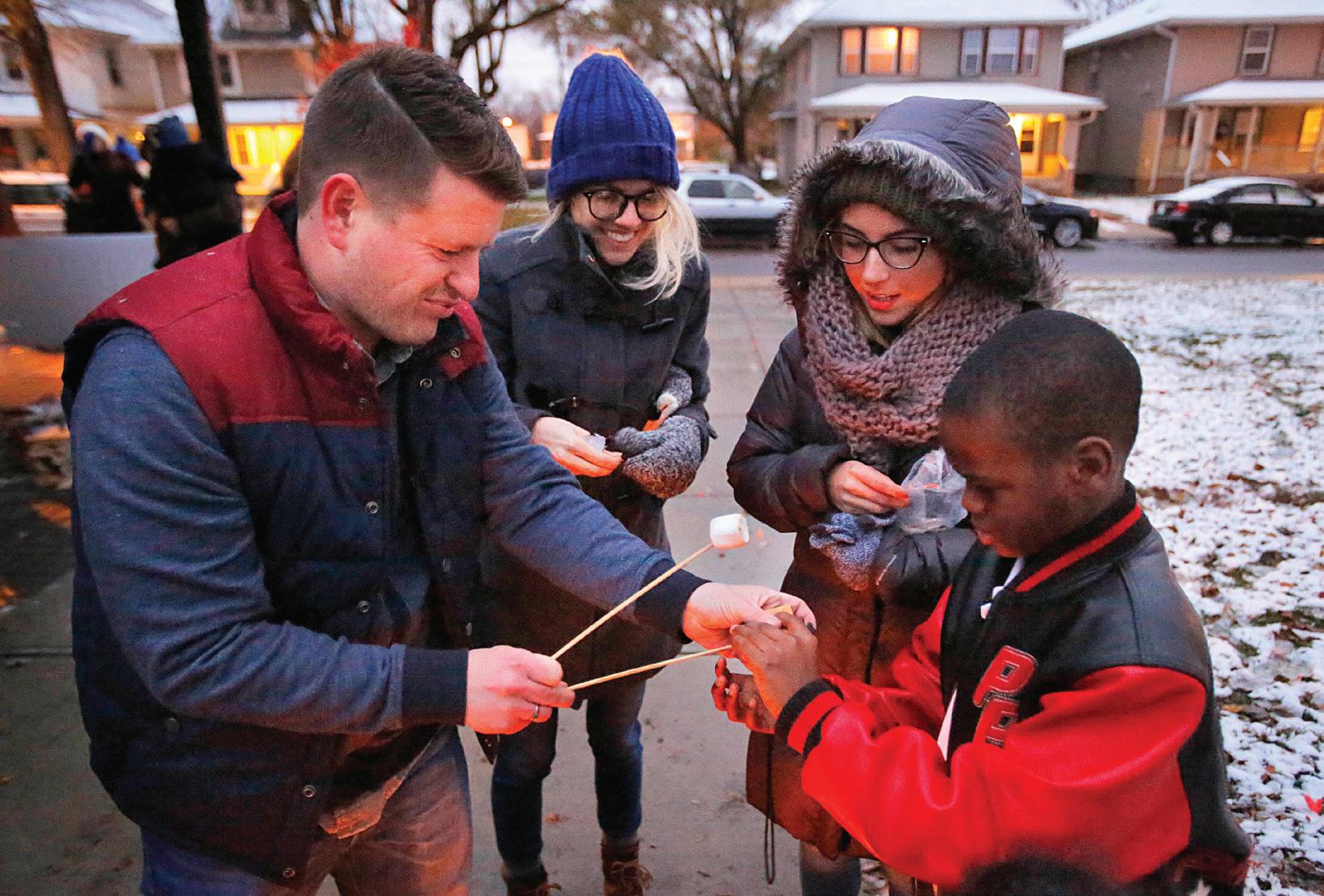
“When we moved in, we decided that we were going to be as open and positive as we possibly could be,” Amy Rager says. “Most of the people around here keep their blinds shut 24-7. They’re very closed. So we thought, you know what? Our blinds are going to be open. We’re going to act like we trust these people. We’re going to do anything we can to initiate that relationship.”
Before their boxes were even unpacked, the family showed up on their neighbors’ doorsteps with freshly-baked homemade cookies. They also invited their neighbors into their home for dinner.
As they continued to build community, the Ragers eventually started worship services with 40 people attending in September 2014. That was the launch of New Circle Church, Indianapolis. A year later their worship attendance more than doubled and they had seen 22 people baptized.
Barry focuses the church on a simple-yetcomprehensive mission—introducing people to Jesus, developing gospel-centered community and commissioning them to reach people for Christ.
“What I get to do is brag on Jesus and what He has done,” Rager says. “It is such an honor to brag on Jesus.”
“I think if it is never our intention to live on mission, then we won’t live on mission,” Rager says. “We have to be intentional in the way we use our time, and in the meetings we have with people.
– By Tobin Perry on AnnieArmstrong.com
See the video: Just Dessert http://anniearmstrong.com/rager/
12 IBSA. org Illinois Baptist
SWEET, SWEET SPIRIT – Indianapolis church planter Barry Rager (left) and New Circle Church use events like S’mores and Snow in the Park to reach a neighborhood many describe as dangerous. The Ragers are North American Mission Board 2016 Week of Prayer Missionaries. NAMB photo by John Swain
“Then I heard the voice of the Lord saying: Who should I send, Who will go for Us? I said: Here I am. Send me.”
Why ‘Baptist’ is our middle name table talk
Denominational tags have fallen on hard times. History and tradition have become baggage.

I would be surprised if you know of a new church that can be identified with any recognizable branch of Christianity. If you can get creek, river, brook, or tree into your church name, for sure it will grow. The more bland, comforting, serene; the more easily confused with a country club or a rock band your church name is, the more in tune with the times you appear.
And the latest trend has moved beyond nature: Bridge. Liquid. Radiance. Paradox. Propulsion.
In the interest of transparency, I began a move to change our church name 15 or 20 years ago, then I chickened out. Baptist is still our middle name.
Here is my attempt to give a bit of context and explanation for our church name to a deep blue, urban, postmodern population.
What’s in a name?
John the Baptist, eccentric prophet. William Carey, linguist, humanitarian extraordinaire. Fredrick Douglas, abolitionistorator. Charles Spurgeon, urban crusader. Nannie Helen Borroughs, women’s leader. Walter Rauschenbusch, social justice warrior. Lottie Moon, China champion. Martin Luther King, renowned activist. Billy Graham, global evangelist. Mahalia Jackson, vocalist without equal. Rick Warren, mega-church pastor, best-selling author. Baptist is a name associated with colorful, controversial, influential figures here and around the world.
There are approximately 32 million Baptists in the U.S., half of them are “Southern Baptists,” over 100 million in the world. As for “The Baptist Church,” there isn’t one. Each Baptist congregation is independent, autonomous, self-governing. Many churches participate in larger entities, but those affiliations do not infringe upon congregational self-determination. Yes, this lends itself to some craziness and confusion; it is what it is.
Baptists are not self-named. Our persecutors began using this label in derision beginning in the 1400s. Theologically and historically, Baptists are those who hold the Word of God, the Scriptures, the Bible, as sole authority in all matters of faith, church order, and practice rather than looking
to tradition, human hierarchies, committees, or governments. Many historians seemingly fail to notice that many who came to America for religious freedom, instituted the same state church systems, persecuting those who did not adhere, repeating the sins of the governments they fled.
In U.S. history, Rhode Island, the first colony with complete religious freedom, was founded by Baptist Roger Williams. Williams’s life was a crusade for freedom of conscience and religious liberty. He founded Rhode Island in 1636 after purchasing the land from the Narragansett Indians.
A refuge from religious persecution, Rhode Island became home to the first Jewish synagogue in America and a sanctuary for Quakers who were being persecuted and killed by anti-Quaker laws in Massachusetts and other colonial territories. Rhode Island was an open door to all people, a
safe harbor in a sea of tyranny and oppression.
In the flurry of activity around the colonies becoming states, the constitution presented for ratification did not provide for religious liberty. Baptists supported the proposed constitution on the condition an amendment on religious freedom would be added.
Finally, Massachusetts and Virginia became the pivotal states in the process. James Madison was running for the state legislature of Virginia against Baptist pastor John Leland.
Madison was about to lose the election. Leland knew this. He also knew without Madison’s golden voice and political influence there would be no constitution. With victory already in his hand, Leland dropped out of the race, giving Madison an open road on the promise that he would pursue language providing for religious liberty.
So sympathetic was Congress, urged on by President Washington, that they made it their first business to consider the issue Baptists were pressing. As a result, the line of the First Amendment reads, “Congress shall make no law respecting an establishment of religion or prohibiting the free exercise thereof…”
Baptist then is not a “brand name” so much as it is a historical, theological descriptor of people who adhere to biblical authority over human authority and are advocates of religious liberty for all.
Charles Lyons pastors Armitage Baptist Church in Chicago.
Pat’s Playbook
QThe children’s area in our church is dingy and it smells bad. How can I get the facilities team to lead a renovation without getting roped into doing it, or paying for it?
“It takes courage for a preacher to share his shortcomings... Especially knowing how upset people get when a sermon runs long.”
AThere are two areas in every church that ought to be spotless, attractively decorated, and appealing to the eye (and nose): the ladies’ restroom and the nursery. Take your facilities team on a tour of the kids’ area to get them thinking about improvements to make it more inviting. Maybe you should take them to visit a church or daycare with updated facilities. Get parents’ perspectives by asking them to fill out a simple survey.
PAT PAJAK
Parents wouldn’t drop off their child at any other place that looked dirty, smelled funny, and needed repairs, so why would we think it would be any different at church? Moms and dads expect the children’s area to be as fresh and up-to-date as their school or pediatrician’s office.
A new (old) model
Q
Our pastor is talking about switching to an “elder-led model” of church leadership. I don’t know how I feel about that. What’s so bad about deacons?
A
The short answer to your question is there’s nothing wrong with a deacon structure; it’s just that sometimes churches get away from the original definition of “deacon.”
Although many churches use their deacons as leaders, responsible for everything from the budget to the upkeep of the building, the original purpose of deacons (outlined in Acts 6:1-7 and 1 Timothy 3:8-13) was to distribute food to the widows. They were servants that allowed the apostles of the early church to concentrate on preaching, studying God’s Word and prayer. Elders, meanwhile, had a different role.
Ask your pastor why he feels an elder model will better serve your church and what type of changes that might bring about. I suspect after he is finished explaining things, you might very well be in 100% agreement and will support him in his decision.
Pat Pajak leads IBSA’s Church Consulting Team.
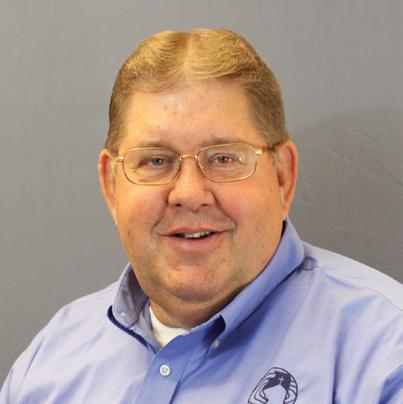

IBSA. org 13 February 15, 2016
Fix it up
I began a move to change our church name, then I chickened out.
meet the team
Meet:
Dennis Conner Church Planting Director Northeast Region
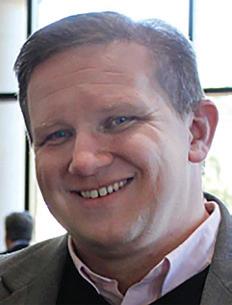
in the news
Praying for awakening
Churches’ all-night vigils focus on campuses
Pray-ers at four locations across Illinois interceded through the night for the state’s college students and campuses.
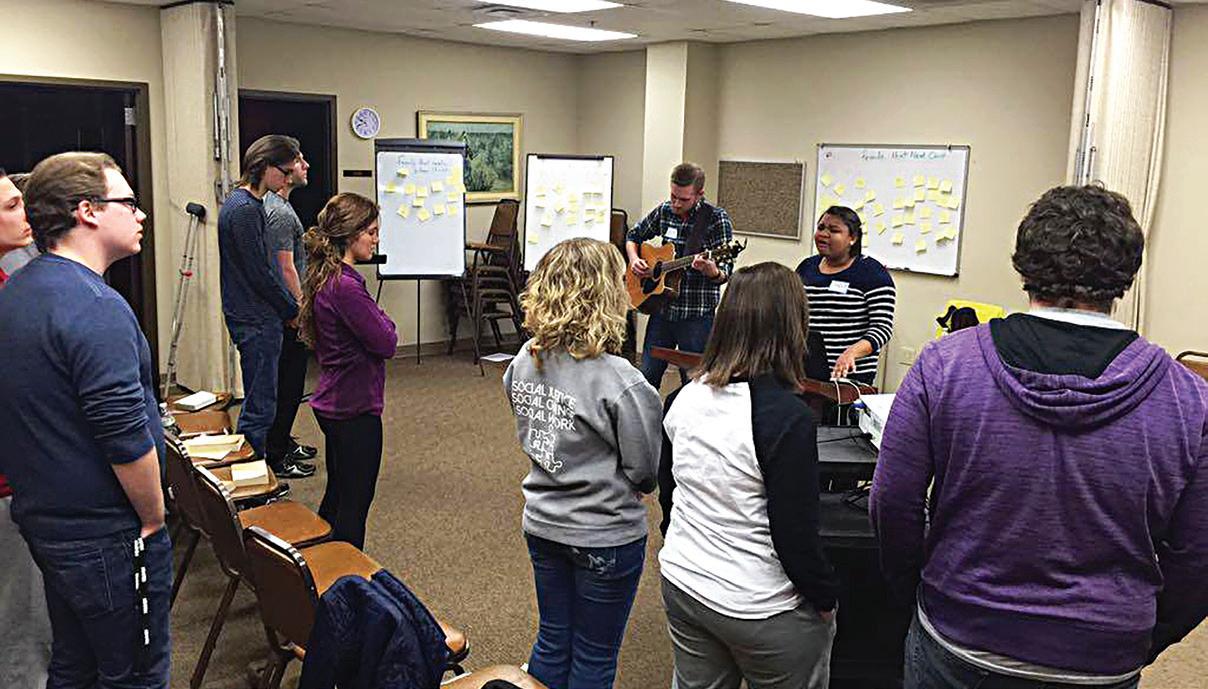
The January 22 night of prayer was organized by Pastor Phil Nelson as a response to the vast spiritual need represented by the more than 850,000 students in Illinois.
Family: Cindy and I have been married for 25 years. We met on a Sunday night at her home church, First Baptist, Camden, S.C. She was smitten from the very moment she met me. She tells it differently.
Favorite thing about church: As a kid, it was friendships. I remember with great fondness inviting families to our house after church on Sunday to enjoy some fresh hot Krispy Kreme Doughnuts, board games, stories, jokes, and lots of laughter.
Now, my favorite part is the opportunity to make a substantial difference in the lives of people, families, and communities that brings glory to Jesus Christ.
Memorable moments as an IBSA staffer: Many. They happen every time a pastor or church member of one of our IBSA churches begins to see Chicago as a mission field filled with people who need to hear and respond to the gospel. And when church planters begin to see the fruit of their preparation and labor as people respond to the gospel.
Favorite movie: The Blues Brothers. It’s full of iconic places from Chicagoland.
Chicago/Illinois highlights: One was the day I got an Illinois license plate for our cars. The DMV cashier said, “Welcome to Chicago. It’s your city now.”
Another was a mild evening last fall. We had the windows open in our home, just a little more than a mile from Wrigley Field. When the Cubs eliminated the Cardinals with the final strike in the playoff series, we could hear the cheers of the ecstatic fans at the game as we watched on TV.
Favorite Scripture: Colossians 1:28-29
NeTworkiNg
Pleasant Grove Missionary Baptist Church in Fairfield seeks the pastor that God has for us, whether he be full-time or bivocational. E-mail resumes to PleasantGroveMiss BaptChurch@gmail.com, or call (618) 599-5439 with questions.
“We had a total of about 50 at four sites that made it all the way until 6 a.m.,” reported Nelson, pastor of Lakeland Baptist Church in Carbondale. “Many commented they had never prayed more than 15-20 minutes at a time before last Friday. We had another 30 or 40 from across the country that prayed through the night with us via Facebook.”
At First Baptist Church, Bethalto, one of the prayer sites, students placed Post-it notes on
whiteboards to note “friends that need Christ,” “family that needs to know Christ,” and “one thing you would like to see God do this year.”
Bethalto student minister Tim Drury posted on Facebook at 4:30 a.m.: “College students are still praying. Right now they are praying that local churches keep their mission and make God famous.”
In southern Illinois, leaders at one small church told Nelson they had felt convicted about how little they prayed together as a congregation. So, they gathered at their pastor’s home to pray from 9 p.m. until 2 a.m.
“They said they had never felt the presence [of God] more clearly,” said Nelson, adding, “This will not be the only time we do this.”
people
Welcome
First Baptist Church, Winthrop Harbor, will install Major Dalton as pastor on March 5. Dalton comes to northern Illinois from Fairfield Baptist Church in Morristown, Tenn., where he was senior pastor. A graduate of Southwestern Baptist Theological Seminary, he also has helped lead churches in Knoxville, Tenn., and the Ft. Worth area, as well as serving as a teaching assistant at Southwestern.
Dalton is married to Kimberly, and they have three children: Stephen, Nicholas and Kristen.
With the Lord
Ada Ann Clemens, 81, of Collinsville, died January 17. She was preceded in death by her husband, Dale, long-time pastor of Meadow Heights Baptist Church in Collinsville, and a past president of IBSA.

Ada Clemens is survived by her sister, Louise; children Kimberly and Jeffrey; and seven grandchildren. Memorials may be made to the Meadow Heights Baptist Church building fund, 1498 Vandalia, Collinsville, IL 62234.
Stephen Alan Shirk, 65, of Murphysboro, died January 25. A full-time minister for more than 20 years, he was serving as minister of music at Murdale Baptist Church in Carbondale.
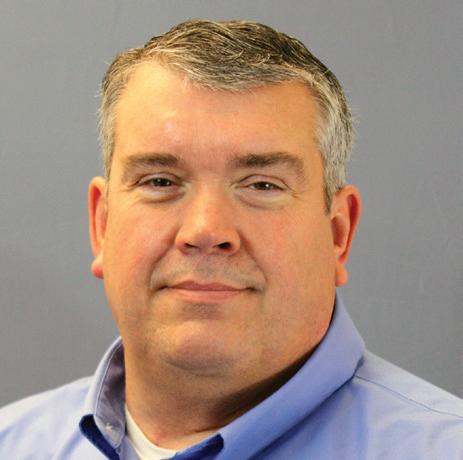

Churches surpass Lottie Moon goals
Sparta $6,000 $6,108
Diamond Springs Baptist Church, Shattuc $350 $405 East Salem Baptist Church, Mt. Vernon $3,000 $3,430
First Baptist Church, Zeigler $1,000 $1,006
Zif Baptist Church, Clay City $1,000 $1,332
Find more information on ministry positions at IBSA.org/connect Send NetworkiNg items to AndreaHammond@IBSA.org
Blooming Grove Baptist Church, located three miles from McLeansboro, seeks a fulltime pastor. For more info, call (618) 643-2706 or send resumes to: Pastor Search Committee, 7709 Blooming Grove Rd., McLeansboro, IL 62859.
North Side Baptist Church, Fairfield, seeks a full-time pastor. Send resumes to: North Side Baptist Church, Attention Wm. J. Vaughan, P.O. Box 75, Fairfield, IL 62837, or ffnsbc pastorsearch@yahoo.com.
First Baptist Church, Raleigh, seeks a bivocational pastor. Must be strong in mission outreach for Saline County; must agree with The Baptist Faith and Message and support the Cooperative Program. Send resumes to sba.director@ gmail.com.
He is survived by his wife of 44 years, Betty Jo; children Stephanie Jo, Joseph and Andrew; four grandchildren; sister Linda; and other relatives and many friends. Memorials can be made to the Murdale Baptist Church building fund, 2701 W. Main St., Carbondale, IL 62901.
Second Baptist Church, Granite City, seeks a part-time music director. Pay is $20 an hour for a schedule of 15 hours per week (includes planning time, rehearsals, and weekly services). For more information on the church and position, go to www.sbcgranite.org. E-mail resumes to pastorbrian@sbc granite.org or fax to (618) 8774395 to the attention of Pastor Brian Smith.
14 IBSA. org Illinois Baptist
GATHERED TOGETHER – Students at FBC Bethalto worship through music at an all-night prayer meeting, during which they also posted spiritual needs around the room.
Church Goal Offering Bethel Baptist Church, Princeton $550 $610 Calvary Baptist Church,
EVENTS
February 20
Church Technology Conference
What: Learn how to use technology for outreach and for corporate worship.
Where: IBSA Building, Springfield Register: www.IBSA.org/worship
February 27, March 5, 19, April 2
VBS Clinics
What: Training in multiple age groups and focus areas
Where: Feb. 27: Chatham Baptist
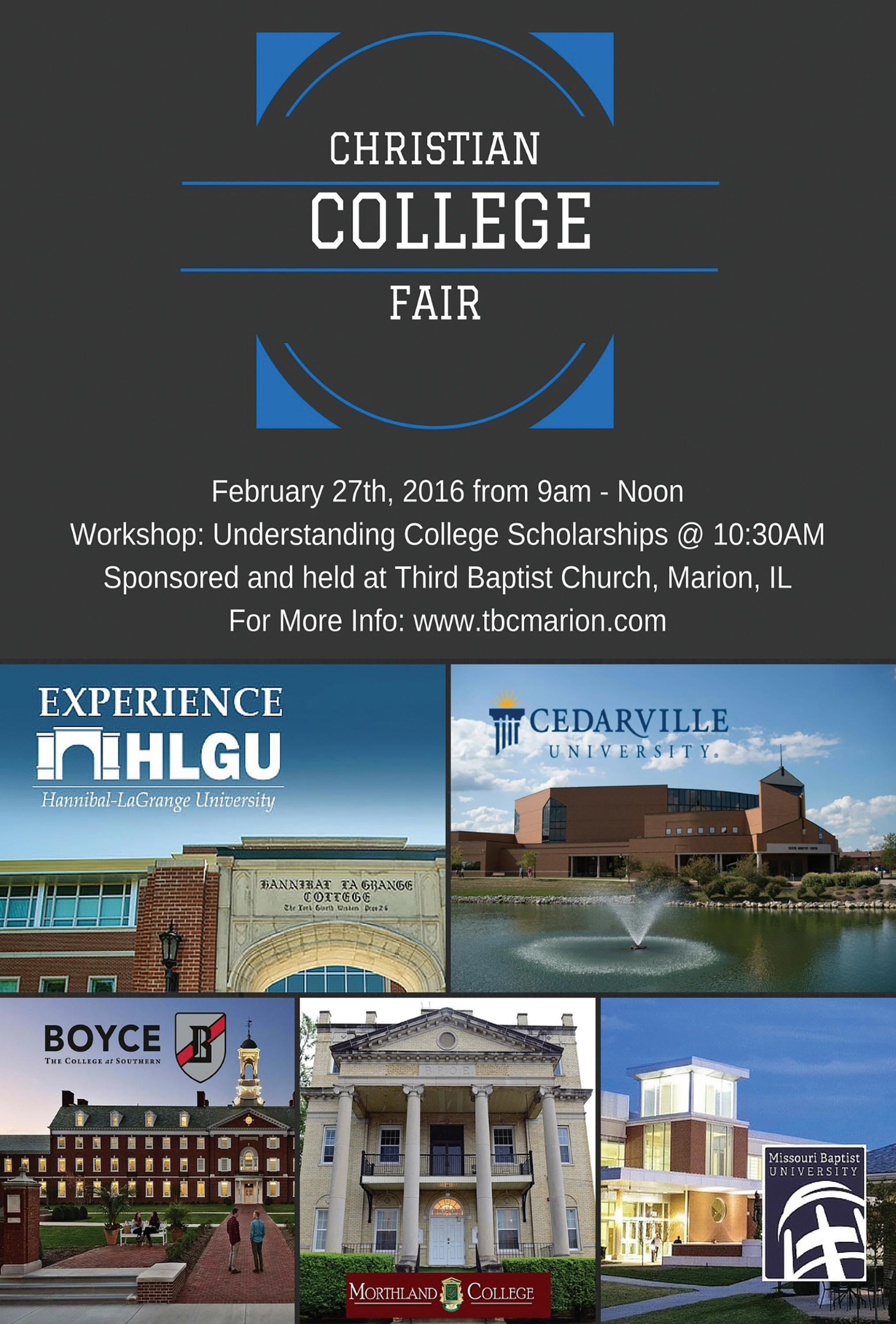
March 5: Second, Marion
March 19: Pleasant Hill, Mt. Vernon
April 2: Broadview Missionary Register: www.IBSA.org/kids
March 12
Children’s Ministry Day
What: Mission projects for grades 1-6
Where: 14 locations across Illinois
Cost: $15 per person Register: www.IBSA.org/kids
March 18-19
Ministers’ Wives’ Retreat
“Where do I fit in this crazy world?”
Where: IBSA Building, Springfield Register: www.IBSA.org/women
April 8-9
Disaster Relief Training
What: Classes in chainsaw, food prep, mudout, childcare, chaplaincy, and more; cost is $30 for new trainees and $10 for renewals
Where: Western Oaks, Springfield Register: www.IBSA.org/dr
April 9
Illinois Baptist Women
Hispanic Leadership Training
March 4-5
Student Ministry
Resource Conference
What: Training for all leaders who minister to students in grades 6-12
Where: IBSA Building, Springfield
Cost: $10 per person
Information: www.IBSA.org/students
March 10
iConnect: IBSA/Pastors
Meet-Up
What: Introduction to IBSA staff, ministries, training and opportunities, for pastors and church staff members
Where: IBSA Building, Springfield
Contact: AlexisDumire@IBSA.org
Where: Armitage Baptist, Chicago
When: 8:30 a.m.-3 p.m.
Information: Ana Melendez, (630) 7123106 or Enid Delgado, (847) 265-9313
April 10
Cooperative Program
Sunday
Resources: Communications @IBSA.org, (217) 391-3119
April 11-12

Resilient Call Retreat
What: A free retreat for pastors featuring Phil Hunter, pastor of West County Community Church
Where: Streator Baptist Camp Register: www.IBSA.org/church_health
Where do the candidates stand?
Who’s funding their campaign?
Who’s endorsed them?
dave says
Thankfulness and boundaries
QMy fiancé and I are getting married in May. He’s a youth pastor, and I’m in grad school. His mom and dad found a home they think we’ll like, and they want to gift us money for a down payment. I’m not sure how I feel about this under our present circumstances. Do you think we should go ahead and accept?
AYou need to get to know each other before you buy a house together. I always recommend that young couples rent for a year and concentrate on each other, the new marriage, cleaning up any debts you have, and establishing an emergency fund. Then, after another year or so when you’ve had time to take control of your finances, the idea of looking for a home becomes much smarter.
It sounds like your future inlaws are really generous people. They’re trying to do something
nice for you two, but they kind of got out ahead of things with this idea. And in the process, they violated some boundaries in your relationship with your fiancé. My advice is to have a conversation with your fiancé about all this and get on the same page about what is the smart thing to do. Then the two of you need to have a loving discussion with his parents. Let him do most of the talking, and say thank you a lot, but let them know you both feel it would be best to start out by renting something for a year or so. Then after a little time has passed, tell them if they still want to help with a down payment you’d both be very grateful.
I think this approach would be good for the boundary issues and for your finances!
Financial advisor Dave Ramsey is a prolific author and radio host.
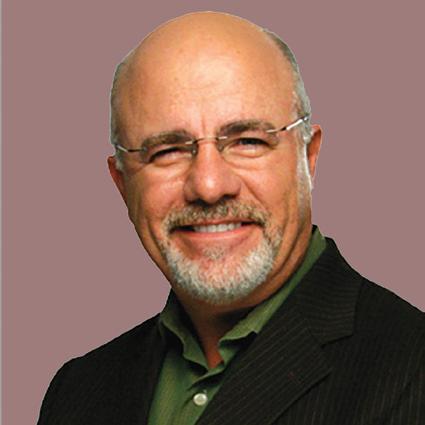
February 15, 2016 IBSA. org 15
Illinois Family Unique. Comprehensive. Easy to use. VOTER GUIDE
ILVoterGuide.com (708)781-9371 Now ONLINE! ILVoterGuide.com
DAVE RAMSEY
Church needed here...
Location: Northwest Illinois (Peoria, Galesburg, Monmouth, and the Quad Cities)
Focus: Hispanic residents
Characteristics: There has been for years a growing population of Spanishspeaking people in the metro and larger communities of Northwest Illinois. The largest segment is second-generation Hispanic.

Prayer needs: Pray that God would send laborers into this vast mission field. Pray for wisdom to discern the best strategy to reach the people here.
inspirations
pinterest.com/illinoisBaptist

Go Big (or go home)
25% of all baptisms in SBC churches are directly related to Vacation Bible School. That’s 80,000 in an average year. It’s an astonishing figure that bears repeating, especially for churches struggling with low baptism numbers. Start with those who are spiritually open and hungry for a relationship with God—young people.
“Expanded VBS” is one of the “5 Building Blocks for Kingdom Growth” featured at the 2015 IBSA Annual Meeting. About 150 churches committed to renewed evangelistic efforts in 2016. Now is the time to plan for VBS.

Start VBS. If your church hasn’t done VBS in a while, make this the year for a big comeback. Make evangelism of community children the goal. Your congregation will take neighborhood kids to heart.
Expand VBS. Add a special needs class or a class for parents. Teach children’s curriculum to the youth group, then make them teachers and coaches. Take it on the road to an apartment complex. Do Backyard Bible Clubs. Team up with a church that doesn’t have VBS and do a second school in their neighborhood.
Bring leaders to a VBS Clinic. IBSA will help you learn how to do it up right.
February 27 – Central, Chatham Baptist Church

March 5 – South, Second Baptist of Marion
March 19 – Mid-South, Pleasant Hill Baptist in Mt. Vernon
April 2 – North, Broadview Missionary Baptist in metro Chicago
Gather ideas. Our Pinterest VBS pages are very popular: www.pinterest.com/illinoisbaptist. And visit IBSA.org/kids for info on additional training.
For more information on the “5 Building Blocks for Kingdom Growth,” visit IBSA.org/Five or read the Spring 2016 issue of Resource online at Resource.IBSA.org.
A Story to Tell
[Jesus] told him, “Go back home to your own people, and report to them how much the Lord has done for you and how He has had mercy on you” (Mark 5:19).
i lead
Leadership blind spots
“You will certainly wear out both yourself and these people who are with you, because the task is too heavy for you. You can’t do it alone.”
(Exodus 18:18)
The concept of a “blind spot” isn’t an ancient one, but that’s exactly what Moses’ father-in-law, Jethro, pointed out when he came to visit the leader of the Israelites in the wilderness.
“What you’re doing is not good,” Jethro said when he saw Moses shouldering the burden of judging God’s people. He laid out a better plan, putting most of the responsibility on Moses’ God. And miraculously, Moses accepted the counsel—from his fatherin-law, no less!
As leaders, we need people who can point out our blind spots. John Maxwell defines them as areas in which we continually don’t see things—either ourselves or a situation—as they really are. These blind spots can hinder our ability to lead others and to lead ourselves.
Who is your Jethro, and what room for improvement does he or she see in your life and leadership?
CARROTHERS
What a story this man had to tell! He knew what bondage was, both physical and spiritual. He was enslaved to the demons that possessed him, which led to the chains and shackles on his body. This man carried a heavy burden that could only be lifted by Jesus, the Son of God. When Jesus acted, it was transformational, for the people did not recognize the man anymore. The freed man had a story to tell, and Jesus wanted him to share it.
I have a story to tell about God using my parents to teach me the good news of Jesus by sharing biblical truth and their stories of God’s redemptive power. It was those seeds of the gospel and the convicting power of the Holy Spirit that led me to repentance of sin and faith in Christ alone.
I have a story that I tell to my children and neighbors about a Savior who died on the cross for the sins of his people and offers hope and new life in him. I have a story about how much the Lord has done for me. What’s your story? Who are you telling?
PRAYER PROMPT: Father God, empower us to tell others what you have done for us. Amen.
Kevin Carrothers serves as pastor of Rochester FBC and president of IBSA.

Pastors, join the IBSA Pastors Prayer Room on Facebook. E-mail oweaver7307@gmail.com.
Maybe you’re avoiding issues that need to be confronted. Or, conversely, maybe you run toward conflict too easily. Perhaps your blind spot is like Moses’. You’re trying to do everything yourself, to the detriment of both your leadership and the wellbeing of people around you.
“What you’re doing is not good.”
Consider the source of those words: As his father-in-law, a part of his family, Jethro was in a position to know and understand Moses. But Jethro, a priest of Midian, also came from a very different place. He hadn’t led the Israelites out of Egypt, and he didn’t have the audience with God that Moses had.
Still, he saw an area in which the man God had called could lead better. Sometimes the people God uses to point out leadership blind spots are the ones you never would have expected.
And here’s the truth: They may be wrong half the time. But that means half the time, they’re right. They may have some of the details wrong, but there’s likely truth in what they’re telling you, because they’re in a prime position to observe you and your leadership.
Carmen Halsey is IBSA’s director of women’s ministry and missions.

16 IBSA. org Illinois Baptist
CARMEN HALSEY
devotional
KEVIN












































































